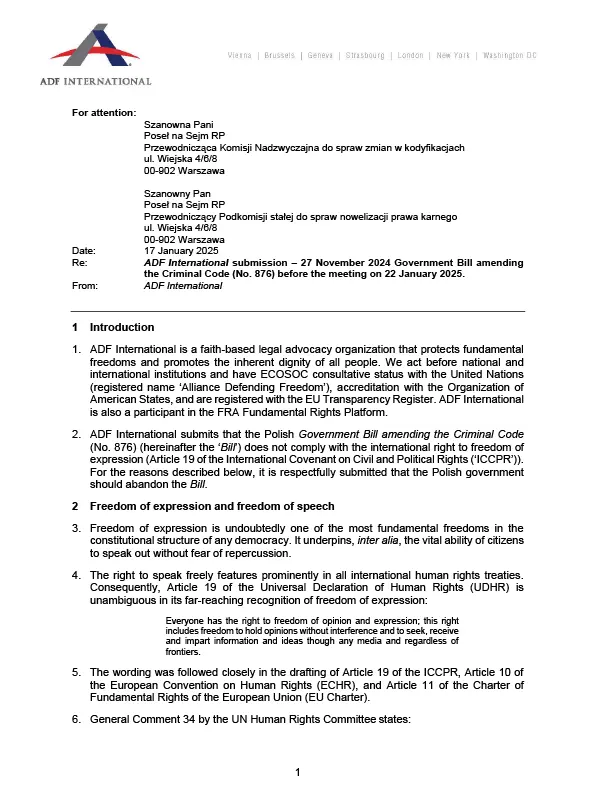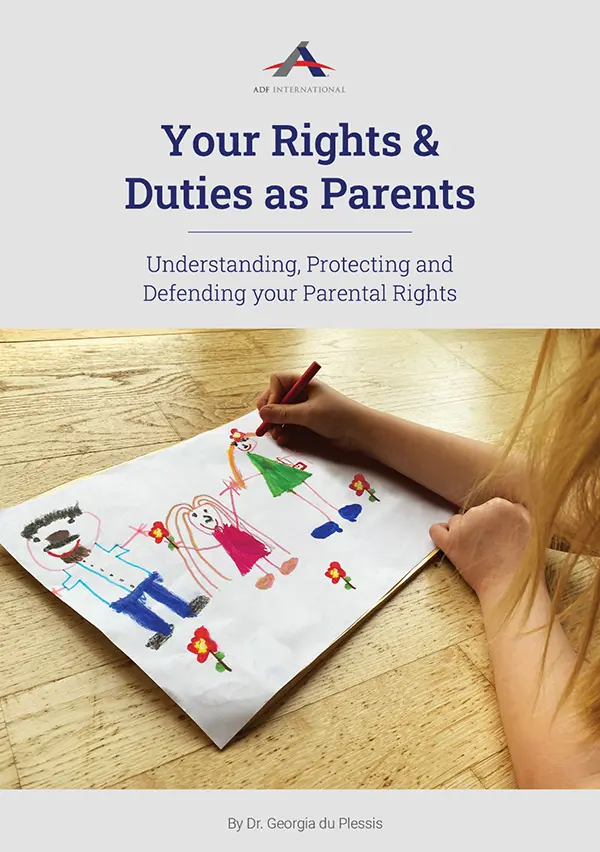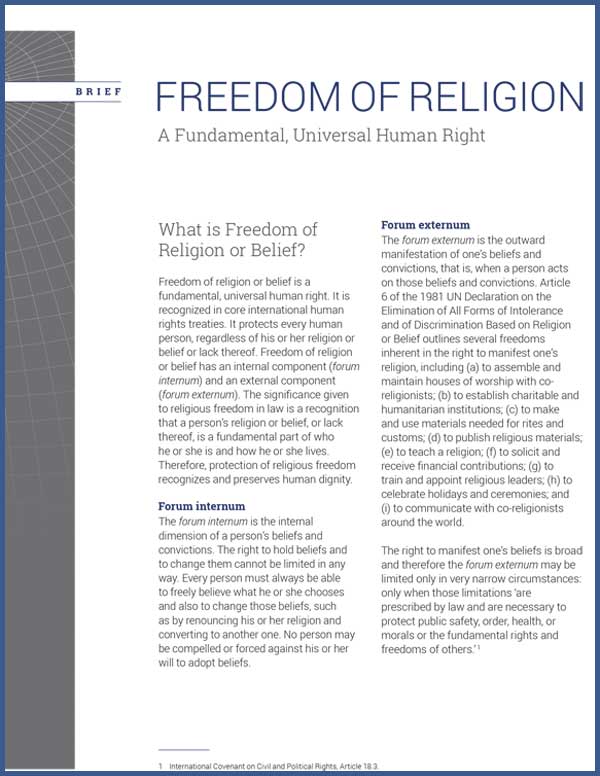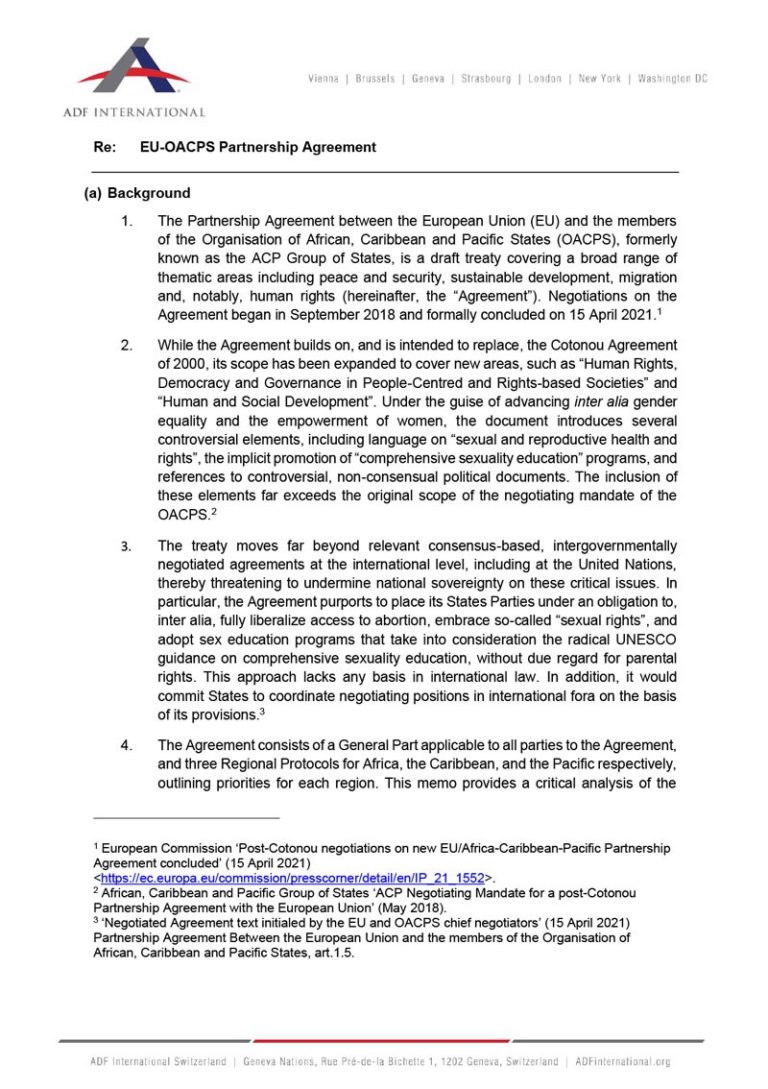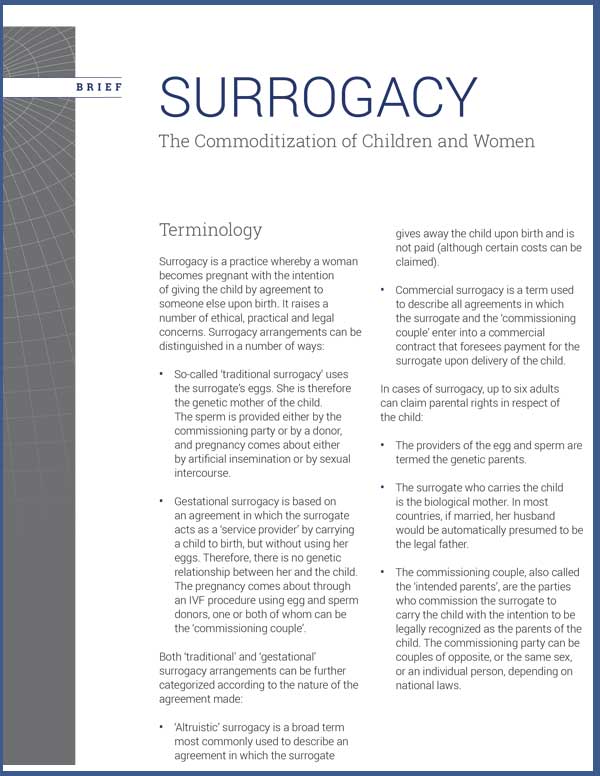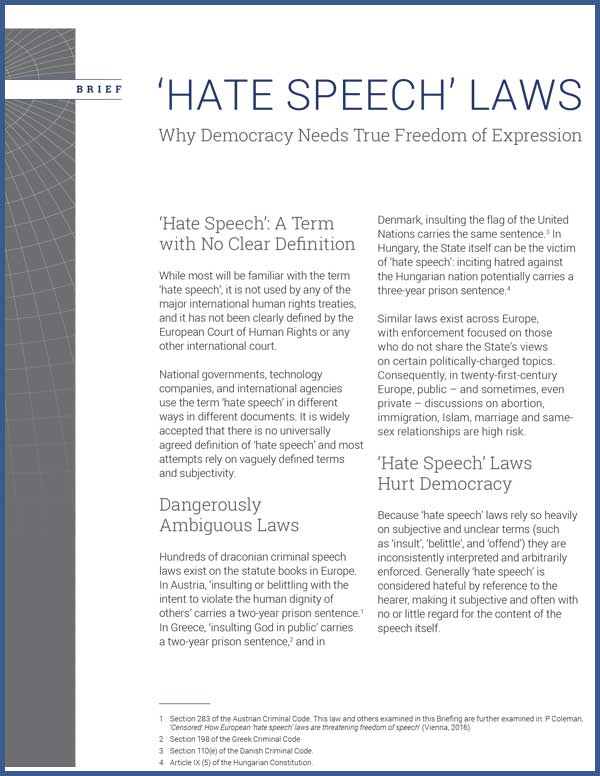ADF International submitted a legal brief to the Polish Parliament challenging the far-reaching Polish Government Bill amending the Criminal Code (No. 876) on hate speech. We argued that the Bill and its enforcement of ‘hate speech’ does not comply with the international right to freedom of expression and extends beyond the universally established grounds of limitation to this right.should abandon the Bill.
Continue readingParental Rights Booklet
As parents, you have natural rights (and also duties) to raise your children. These are pre-political and pre-exist all governments, states and international organisations
Continue readingNavigate Destructive Gender Ideology in Schools
Some government officials are using our education system as a platform to introduce lies to children, including lies about the fundamental nature of their
biology. This push to enforce radical gender ideology is harming children, destroying families, and tearing away at the very truth and dignity of human nature, gender differences, marriage, and the family.



